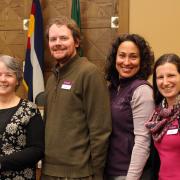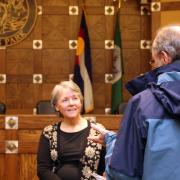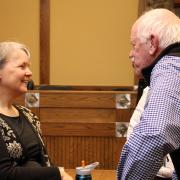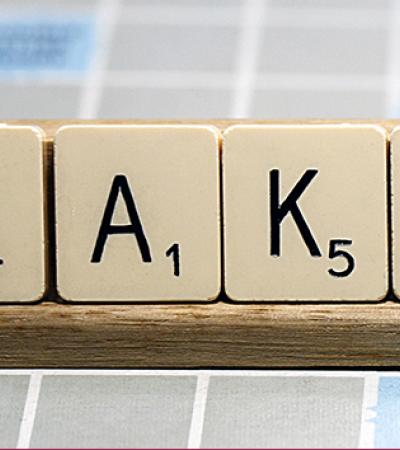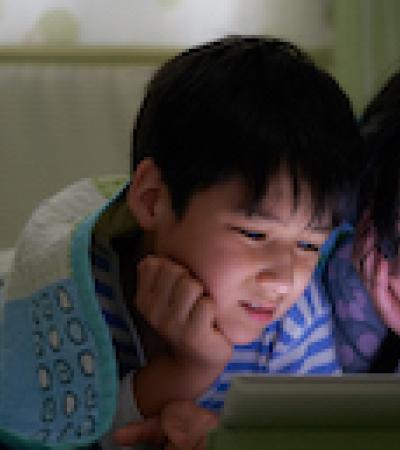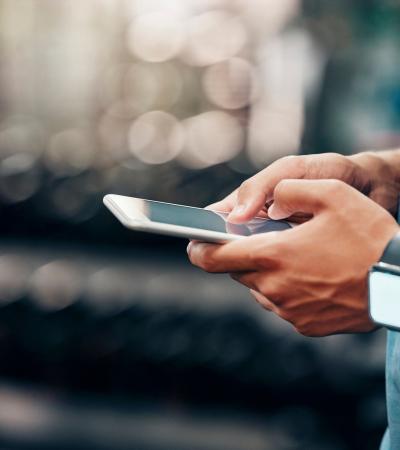We were chosen to participate in ALA's Media Literacy @ Your Library prototyping project. As part of that program we are offering three public programs on news literacy. Our first was a lecture with Elizabeth Skewes (University of Colorado at Boulder's College of Media, Communication and Information) on Monday, Feb. 5, at 6:30 p.m.
Using these slides, Skewes talked about news literacy and fake news, gave a historical perspective of this issue, and discussed how to proceed as a news consumer in this changing landscape.
Advanced Planning
We started planning about three months out, mostly to book our speaker. We thought a journalism faculty member would be a good fit, so we looked for someone who had experience with, or had published a book about, news literacy. When we found a potential speaker, we would watch YouTube videos of them at different programs and consider how their style would appeal to our community and align with our project goals. We then created a short list of people we thought would be a good fit, and lucky for us, the first person we invited said yes.
We also spent some time planning the program format. With just one presenter, we had to think about how long her presentation and the Q&A should be. We read some facilitating resources for Q&As, which was really helpful. We knew there would be a lot of questions.
We also developed a simple speaker’s agreement in which we stressed that we wanted the lecture to be non-partisan. She did state that she voted Democratic, but she did it in a way that was more for transparency than advocacy. (View the speaker's agreement under Attachments at right.)
Our venue posed an unexpected challenge. We had originally planned on holding this event in the library’s largest meeting room, which fits 50 people. Our backup plan, if registration exceeded 50 people, was to move to the common space where people first enter the library, which can hold 80. Because news literacy was a new topic for us, we didn't know how many people to expect.
Good thing we had people register, becauses before the event, registration had already exceeded 100. We’d already contacted the Town of Estes Park, which allows organizations to use their board room. The room was already booked for that date, but their program was much smaller than ours, and they generously agreed to swap spaces. All of that happened within 24 hours of the event.
Marketing
Our library sent out a survey last summer, and the community told us they liked being informed about things through email. We don't use it for every program, but for some of our major programs (like this one) we send email blasts. The community also told us they look at our website, so we posted the lecture there as the top-tier event. We also did regular newspaper announcements, hung posters and included the event in our seasonal newsletter.
Another resource is the library's weekly column in our local newspaper. We introduced the topic in April 2017 when Claudine, our director, wrote an article on fake news and how libraries can play a part in combating it. We talked about news literacy again in the January column, and then included it in the column right before our program. (View one of our columns under Attachments at right.)
Through all of our marketing, we used the tagline “Concerned by fake news? The library is too.” That worked well for us. It wasn’t sensational; it just pointed out that the library is concerned about this issue.
Budgeting
Our total budget for the event was $670. We offered the speaker a $500 honorarium, along with a $70 mileage reimbursement since she had to travel from another town. The venue was donated to us, and we paid $100 for the A/V guy who set up the tech.
Day-of-event Activity
We came in Monday morning and hit the ground running, firming up the venue and getting the word out about the changed venue. The town hall is next door to the library, so luckily we just had to redirect attendees when they arrived. Two volunteers redirected attendees for both the library's and the town's events.
The event started at 6:30 p.m. We got to the room at 5:40 p.m. to unlock the building and turn on the lights. We asked the speaker to arrive 30 minutes early to do a sound check, and then we met the A/V tech so he could set up the sound system and check the Powerpoint. When people started arriving, Diana handed out evaluation forms and news literacy bookmarks, and Kurtis greeted guests at the front door.
The venue worked nicely, with enough seats for everyone. One of our staff members took a few great photos of the audience, along with a few posed pictures with the speaker and our staff. Our director Claudine gave introductory remarks and helped pass the handheld microphone during the Q&A.
Program Execution
We were pleased that 104 people attended and 54 evaluations were turned in. We don’t always get that kind of return rate on evaluations, and this one asked some in-depth questions.
People really appreciated that the speaker told them about an app called Read Across the Aisle that helps users read more balanced news. Many people mentioned that they were going to check news outlets across the political spectrum, instead of just what aligns with their own beliefs. People also appreciated the historical perspective on fake news that the speaker gave.
Three people mentioned that they wanted more specific tools to evaluate the news, which I think is fair. I think in this lecture format you receive more of an overview of a topic. I hope that those three people attended our later workshop program where we gave more specific tools and practice identifying fake news versus reliable information.
Advice
Some topics can be controversial, and that was one concern going into this program; we didn't know whether the discussion would get politicized. We said this at the start of the program: "I want to acknowledge that this is a politically charged topic. The library’s goal is to offer an opportunity for education and civic dialogue. We all know that there are a variety of viewpoints in the room, and that’s a good thing."
We would also recommend asking local newspapers or radio stations to come cover your program.

